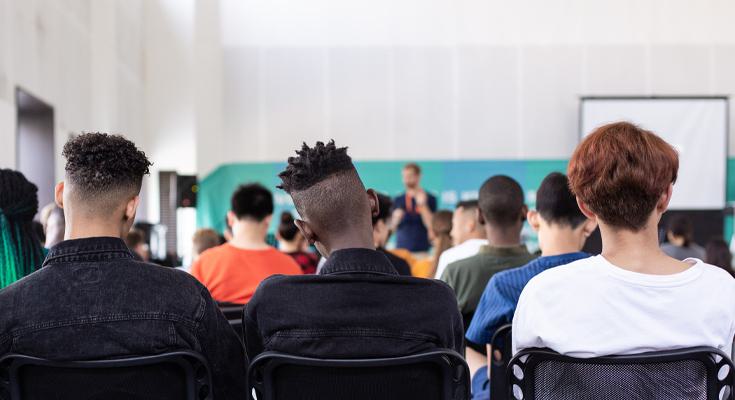The Alabama State Department of Education (ALSDE) announced this week that it has joined the EdTech Evidence Exchange, a nonprofit affiliated with the University of Virginia's School of Education and Human Development. Alabama has joined the inaugural cohort to help educators share data about what technology works, where and why.
Alabama joins Utah and Nevada in the program that will enable its educators to share insights through this tool that will enable teachers nationwide to learn from each other’s experiences using thousands of education technology products.
The ALDSE said the EdTech Evidence Exchange taps educator insights to help schools make better-informed decisions about education technology.
“Currently, most of our information on the effectiveness of EdTech tools comes from online research, vendor presentations, and collaboration at conferences,” said Joe Goble, administrator of education technology for the ALSDE. “Now, collecting data on the experiences of using technology from educators across the nation allows ALSDE to benefit from their insight, experience, and perspective.
“We have high expectations in Alabama; from making sure Computer Science is available in all high schools, to establishing STEM labs across the state. This partnership now allows us to cast a wider net and gain relevant information from colleagues and professional peers who are also in the business of advancing public education and increasing academic outcomes in all academic areas, particularly reading and mathematics.”
Before the pandemic, the U.S. was spending between $25 and $41 billion per year on education technology, with approximately half of it being used ineffectively, being underused, or being unused entirely, according to the ALSDE. The state claims a key cause of this ongoing waste is that schools and districts currently lack the incentive and mechanisms necessary to learn from each other’s experiences.
To address this challenge, the EdTech Evidence Exchange collects data from a representative sample of educators. Each educator reports on their experiences using technology and also describes the environment in which that technology is implemented.
They do this using the tools developed through the EdTech Genome Project in a way that makes it possible for other educators to sift through each other’s feedback based on relevance. When this work scales up, it will make it possible for educators to learn from the experiences of others working in similar contexts — an approach with the potential to save billions of dollars and lead to dramatic improvements in student learning outcomes.
“When used properly, education technology can support great teaching and learning in ways that are equitable, empowering, and inspiring,” said Bart Epstein, Co-Founder and CEO of the EdTech Evidence Exchange. “Our partners in Alabama and around the country are setting an example for the ways that state leaders can bring data and educator insights to bear on solving one of the most vexing challenges in education.”
The initiative is supported by the Carnegie Corporation of New York, the Chan Zuckerberg Initiative, and Strada Education Network.
The results from the three initial states will help thousands of educators share their experiences with the stated goal of learning from one another nationwide at scale.
To connect with the author of this story, or to comment, email sean.taylor@1819News.com.










